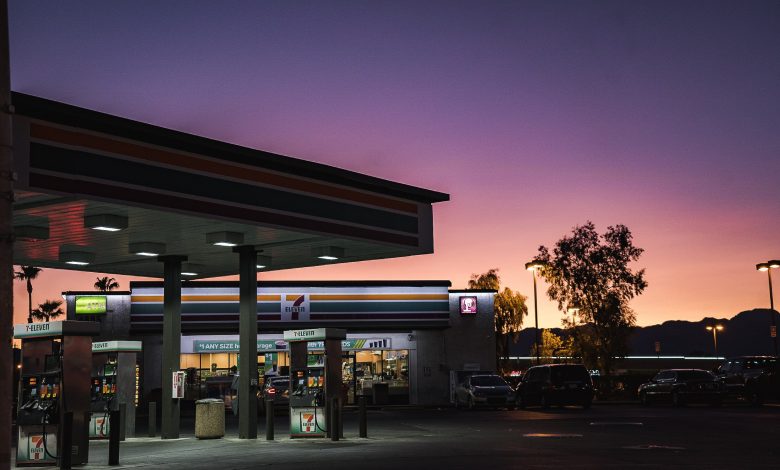How to Cope with Higher Gas Station Prices

Just as with any other product, the gas station prices that consumers pay to fill their cars depends on the cost of producing the fuel. More specifically, when petroleum, the original product that gas is derived from, becomes more expensive, so does the cost of transportation. In those situations, consumers may struggle to find cheap gas nearby them.
Since early September of this year, oil prices (per barrel) increased by about ten percent. During that same period, gas station prices in the US climbed by a nationwide average of 1.2% per gallon. Needless to say, this change can have a negative impact on your wallet. This is even more important because transportation is an essential part of our daily lives. The inflated gas bill might shock many households, especially those who are unaware of and unprepared for these price changes.
Different factors impact the cost of petroleum and oil. Most, if not all, are out of consumers’ control. Having said, there are many things that you can do to cope with these fluctuations. The most prominent methods are gas rewards credit cards, fuel discount offerings, and calculated budgeting. Perhaps more importantly, if consumers use them the right way, these tools’ benefits can go beyond just saving money on gas.
Why Petroleum and Gas Station Prices Are Getting Expensive
Saudi Arabia exports more oil than any other country. In addition, one-fifth of the world’s petroleum reserves (18%) are under the Middle Eastern nation’s deserts. Last September, however, Iranian missiles attacked prominent Saudi oil facilities. As a result, production was temporarily halted until the damaged refineries were repaired.
This shortage in supply made oil significantly more expensive. After that, in early October, members of the Organization of Petroleum Exporting Countries (OPEC) suggested that they could further lower production and supply levels. While this decision is unrelated to the Iranian attacks, it still pushed prices upwards.
Lastly, earlier this month, OPEC made a similar hint during their latest meeting in Vienna, Austria.
As mentioned earlier, all of these factors are out of consumers’ control. Household budgeting and planning choices, however, are in their hands.
Rewards and Discounts
Gas rewards offerings are the most popular type of discount in the US. Almost two-thirds (62%) of Americans prefer it over other rewards, including travel discounts such as the Southwest VISA program.
A gas rewards credit card allows consumers to earn points every time they make a purchase, whether it’s online or in person. After that, when the points accumulate, buyers receive discounts that they can redeem for cheap gas nearby their location.
To put things into perspective, the average American spends almost $164 per month or ($1,965 per year) on fuel. Another roughly $645 goes towards groceries and dining.
Most gas discount programs give a three percent reward on each dollar that a consumer spends. In other words, if an American household uses this type of credit card when they pay $645 at stores and restaurants, they would save about $20 per month (or over $230 per year) on gas.
This offering is even more advantageous because it allows card holders to build their credit. In the long term, it enables you to save money by getting a low interest credit card. Moreover, you may qualify for more credit that can go towards additional fuel rewards.
Consumers with no credit history or a bad score can also earn points and discounts. Many grocery stores, retailers, and other businesses offer pre-paid gas rewards gift cards. Just as with lines of credit, you can use your gift card for different types of purchases. After than, your points balance grows, and you can qualify for discounts on gas station prices.
Finding Cheap Gas Nearby
Unfortunately, almost half of the Americans who go on road trips forget to include the cost of gas in their budgets. The additional expense comes back and surprises them later.
This is even more worrying when it happens while travelers are away from home, regardless of whether or not they find cheap gas nearby their destination. Today’s increased gas station prices only make things worse.
Whether you commute to go to work or as a frequent traveler, choosing the right location to fill your car’s tank can lead to a stream of savings. After all, keep in mind that each state, county, and municipality has its own regulations on gas.
As a result, prices can vary from one location to another. For example, Spokane County, WA and Kootenai County, ID are only separated by the Washington-Idaho state border. However, fuel is almost ten percent cheaper in Kootenai County than in Spokane.
Spokane residents that are employed in Idaho can save a lot of money by filling their car tanks and paying the prevalent gas station prices near their work. Kootenai County residents, on the other hand, are better off when they do so at home.
The same logic applies to road trips. To illustrate, assume that someone is traveling from Chicago, IL to Denver, CO.
If they buy gas at home, the traveler has to pay $2.83 per gallon in Cook County. Conversely, they can decide to only fill a portion of their tank in Chicago.
From there, by the time that the traveler reaches Missouri, they can easily find cheap gas nearby and fully load their car for less than $2.21 per gallon. This is almost one-third less than the price in Cook County.
What happened to carpooling?
Many people prefer to commute with their friends and family members in order to save money. Splitting the gas bill with others is certainly a great way to cut expenses. However, carpooling isn’t an option for everyone.
Amongst a family of four, for example, the parents’ work schedules might greatly vary from their children’s school hours. In fact, this also apples to roommates and friends whose workdays start and end at different times.
Just as importantly, carpooling doesn’t build your credit or award you with points. On the other hand, certain savings methods that we outlined in this article, such as rewards credit cards, allow you to save in both the immediate and distant futures.
As a matter of fact, even carpoolers can save plenty of money through taking advantage of these programs.
The Road Ahead
Signing up for gas rewards and saving money is a good way to handle inflated fuel costs. Doing so while building your credit is an even better approach. Similarly, by strategically choosing where to pump your car, you can lower each month’s gas bill, regardless of whether gas station prices go up or down.
If you haven’t considered your rewards options before, now is a good time to do so. Moreover, consumers should keep an eye on the different per gallon costs and determine whether they can find cheap gas nearby their home or work.





